
Imagen editada en Canva

Cuando ya nuestro bebé creció y comienza su educación formal, todas sentimos ese temor instintivo de que algo les pueda suceder en nuestra ausencia. Tratamos de prepararlos ante cualquier eventualidad, e inclusive, ya de adultos, eso no cambia.
Recuerdo a mi abuela de 80 años, decirle a mi mamá, que para entonces contaba con 50, un matrimonio y dos hijos ya mayores de edad, que debía cuidarse al salir, y ver a ambos lados de la calle antes de cruzar.
Así que previo a esta separación, comenzamos a pintarles el panorama de lo que vendrá, como una forma de incentivarlos a querer descubrir lo novedoso de esta experiencia. Comentamos sobre la maestra, los juegos, canciones y dibujos que podrá hacer o aprender, y también mencionamos a los nuevos amigos que tendrá.
Y en medio de esa conversación también advertimos lo importante que es defenderse ante cualquier eventualidad que pueda ocurrir. En algunos casos, enseñamos que es importante comunicar a un adulto cercano, si algo o alguien los molesta. Pero también están los padres que directamente les dicen “si te pegan, tu pégales también”.
Y llegado el día inicial, cada niño viene cargado con una información distinta, que, unido con su instinto de supervivencia, le dará luces sobre como debe comportarse en ese nuevo ambiente.
Al principio, el impacto del desapego obligado puede generar que empiecen a llorar, aferrándose a nuestro cuerpo, y nosotras, con un nudo en la garganta, nos empeñamos en hacer que entren, algunas con palabras de aliento para ellos, y otras, más frías, dando media vuelta para salir, convencidas de que es lo mejor.
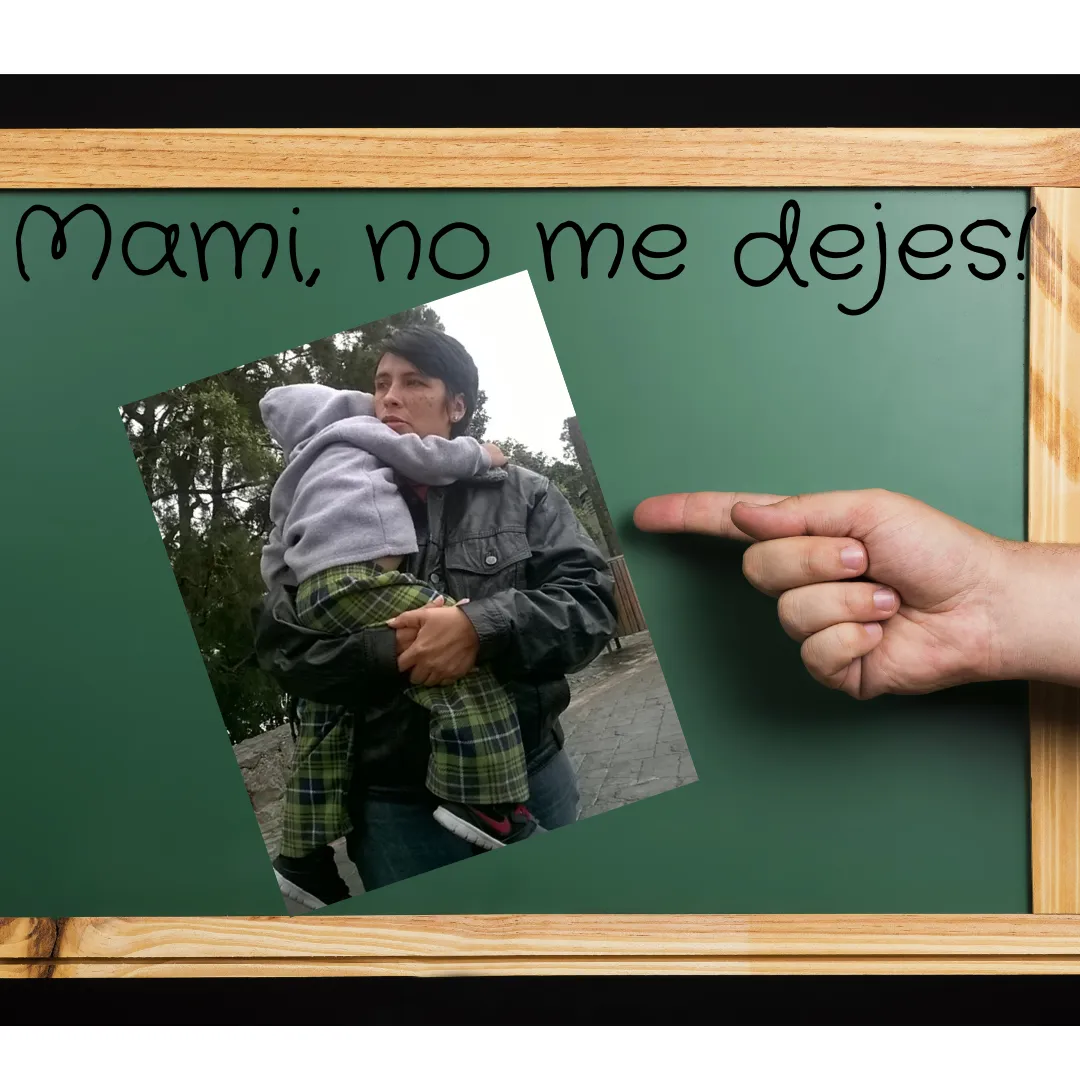
Imagen de mi archivo familiar
Ya en un espacio completamente distinto al conocido, nuestros niños se sienten vulnerables, y empezará su propio proceso de adaptación, buscando experimentar y conocer su entorno. Cada uno de ellos viene de una crianza (o mala crianza) de su casa, que puede que sea compatible con la nuestra, y en ese caso, establecer relaciones con ellos resultará algo natural.
Pero ¿qué pasa con aquellos a quienes les dicen que es normal defenderse usando violencia?
No son juegos de niños
Cuando en un grupo, se encuentra un infante que usa la violencia para hacer ver su punto de vista, o generar un liderazgo forzado, es importante tomar cartas en el asunto.
En muchos casos, los adultos responsables justifican que las mordidas, los empujones u otra conducta trasgresora de la seguridad del resto, son parte de los juegos infantiles, pero esto no es del todo cierto.
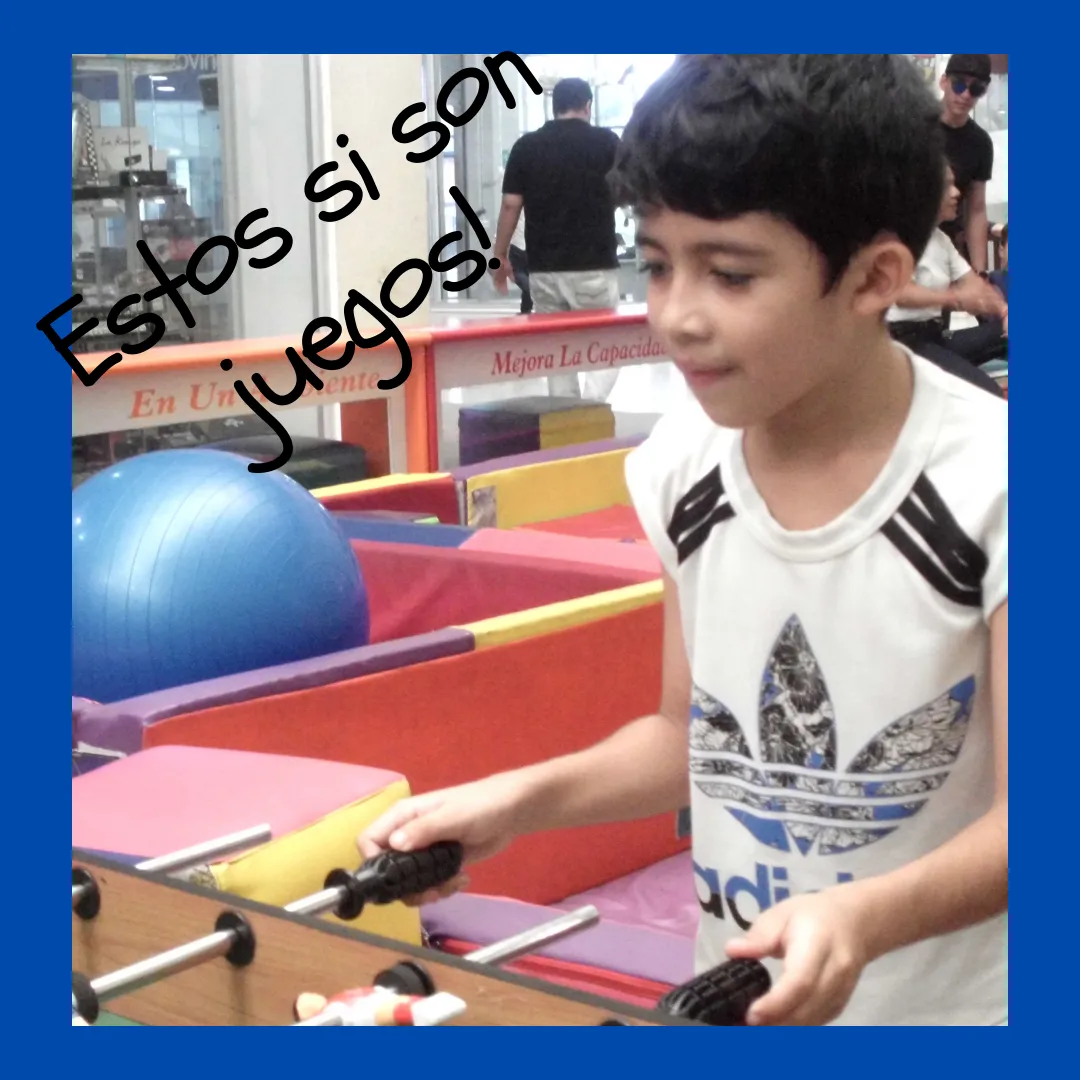
Imagen de mi archivo familiar
Cuando nuestro niño/a llega a casa con un golpe visible, o nos manifiesta que algo le incomoda, debemos accionar para en principio, generarle confianza y así evitar la generación de aversiones, luego sentarnos en un espacio tranquilo, conversar y recomendarle formas de manejarse ante esas situaciones.
Pero también es fundamental hacer eco de eso entre las personas a quienes encomendamos su educación, ya que su desempeño académico y social dependerá de la manera en que sea tratado dentro del recinto escolar.
Si bien no soy partidaria de la violencia en ninguna de sus expresiones (física, verbal o emocional), siempre he recomendado a mis hijos que no escondan sus opiniones y que se hagan respetar por los demás. Considero que criar niños sumisos, los hace blanco de abusos a futuro, inclusive en la adultez.
Trato de crearle consciencia, tanto de sus derechos como de sus deberes, y cuál es el límite en ambos casos. De ello, he logrado niños cuestionadores, que, si algo no le parece, lo manifiestan a viva voz, pero sin llegar a la violencia.
Saben que pueden acudir a sus maestras en caso de sentirse incómodos, y los involucro en mis relaciones de amistad con mis seres más allegados, de manera que sepan a quienes pueden acudir en casos de emergencia, con el debido consejo de manifestarme si ellos, por alguna razón, lleguen a molestarlos.
Bullying intrafamiliar
Pero a veces, esas situaciones se generan dentro del grupo familiar, y es entonces cuando los chicos se confunden y no saben cómo responder.
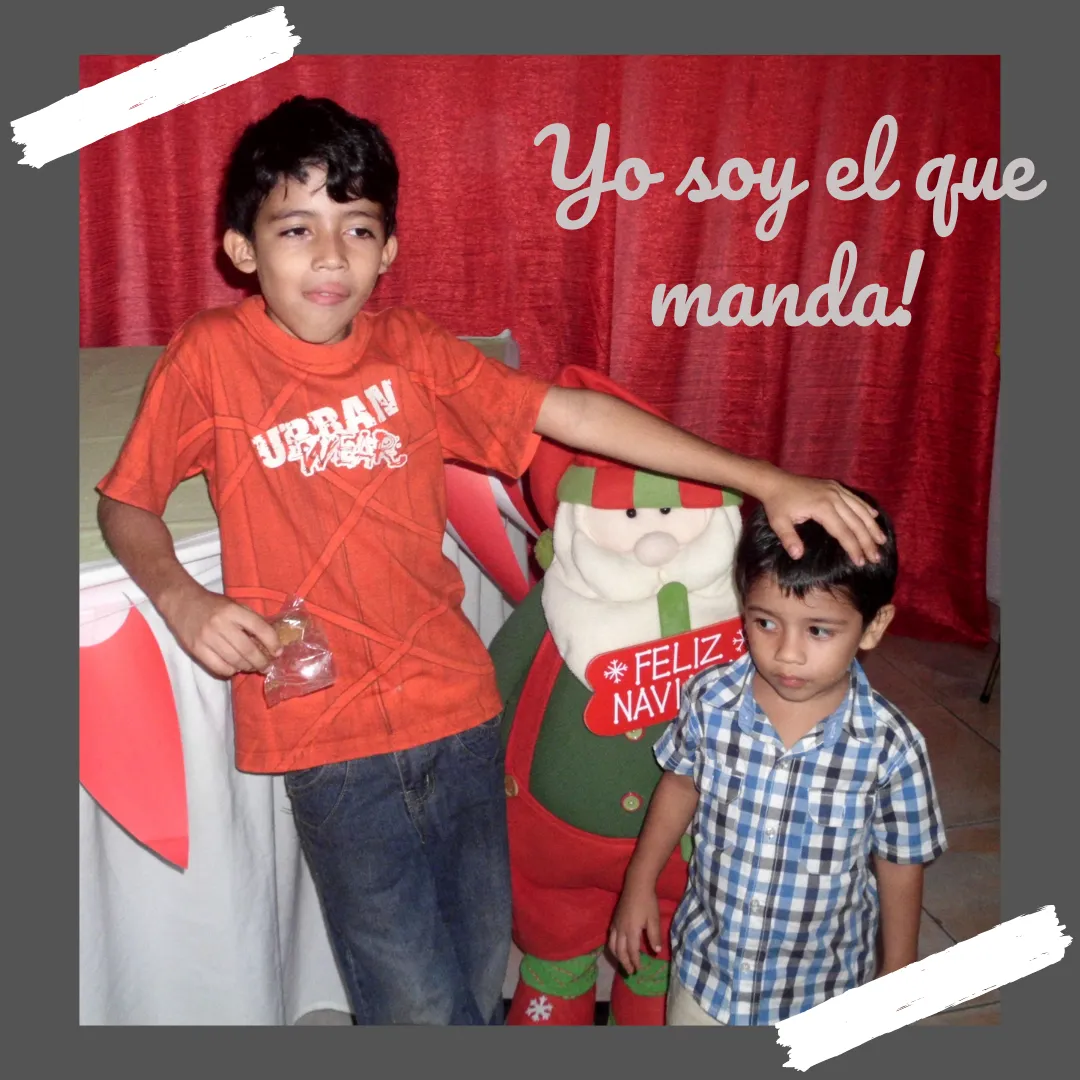
Imagen de mi archivo familiar
En mi caso particular, mis primos solían criticar y molestar a mi hermano, que era muy tímido de pequeño. Para la familia, era un juego y a veces, hasta los adultos se unían a las burlas. Ante esto, mis padres no hacían nada para pararlo, y él cada vez más se cerraba en su caparazón, hasta el punto que ya grande, simplemente no volvió a visitarlos.
Igual pasó conmigo, pero esta vez, era mi propia madre quien se burlaba de mí. Para ella, no lograr que me comportara como su visión particular de una niña, era motivo para ponerme sobrenombres y decir palabras desagradables sobre mi, tanto a familiares y amigos, como a extraños.
En estos casos, la confusión en los niños aumenta, porque ¿a quién se supone de pueden acudir?
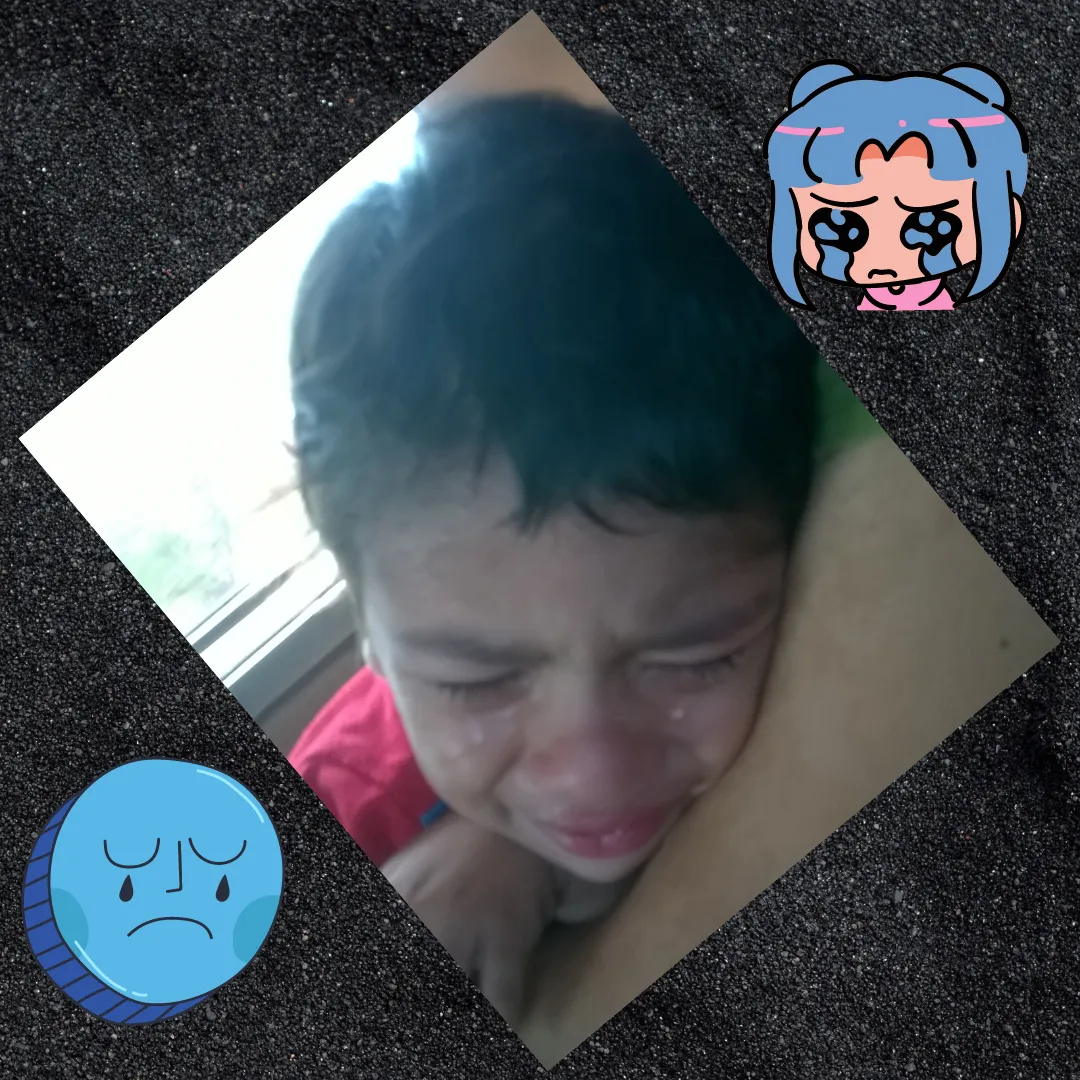
Imagen de mi archivo familiar
Yo empecé a generar una rabia interna que canalizaba a través de mis estudios y actividades cotidianas. Me esforzaba en sobresalir, como una forma de generar orgullo en mi mamá, quien, a su vez, solo veía los errores que podía cometer.
Esta clase de comportamientos, que a veces son producto de repetir patrones de crianza, deben ser erradicados, sobre todo si las víctimas manifiestan su incomodidad. En estos casos, siempre hay una opción. Acudir a alguien que te genere confianza para hablar lo que te incomoda, y que a través de esa persona, pueda canalizarse un cambio de actitud del victimario.
De no resultar, y ya pasado el tiempo, está en tus manos salir del círculo vicioso, y alejarte de aquello que genere descontento y malestar, como fue mi caso. Poner distancia entre lo que me hacía daño, me ha ayudado a mejorar mi autoestima y a enseñarle a mis hijos la importancia de evitar relaciones de este tipo, así sean familiares.
El ¡no te dejes! no está mal, pero te lo tienes que decir a ti mismo, cuando alguien trate de vulnerar tus derechos legítimos como persona, también aconsejarle a tus hijos que no se dejen, pero no usando la violencia, sino evitando ser blanco de burlas y denunciando cuando otros interfieran en el desarrollo correcto de su día a día.
Don't leave anybody punch you!

When our baby is grown up and begins their formal education, we all feel that instinctive fear that something might happen to them in our absence. We try to prepare them for any eventuality, and even as adults, that doesn't change.
I remember my 80-year-old grandmother telling my mother, who by then was 50, married with two grown-up children, that she should be careful when going out, and to look at both sides of the street before crossing.
So prior to this separation, we began to paint them a picture of what was to come, as a way of encouraging them to want to discover the novelty of this experience. We talk about the teacher, the games, songs and drawings they will be able to do or learn, and we also mention the new friends they will have.
And in the midst of that conversation we also warn them how important it is to defend themselves against any eventuality that may occur. In some cases, we teach them that it is important to tell a nearby adult if something or someone bothers them. But there are also parents who tell them directly "if they hit you, you hit them too".
And when the initial day arrives, each child comes with a different set of information, which, together with their survival instinct, will give them a clear idea of how they should behave in this new environment.
At the beginning, the impact of the forced detachment may cause them to start crying, clinging to our body, and we, with a lump in our throat, try to get them to come in, some with words of encouragement for them, and others more coldly, turning around to leave, convinced that it is the best thing to do.
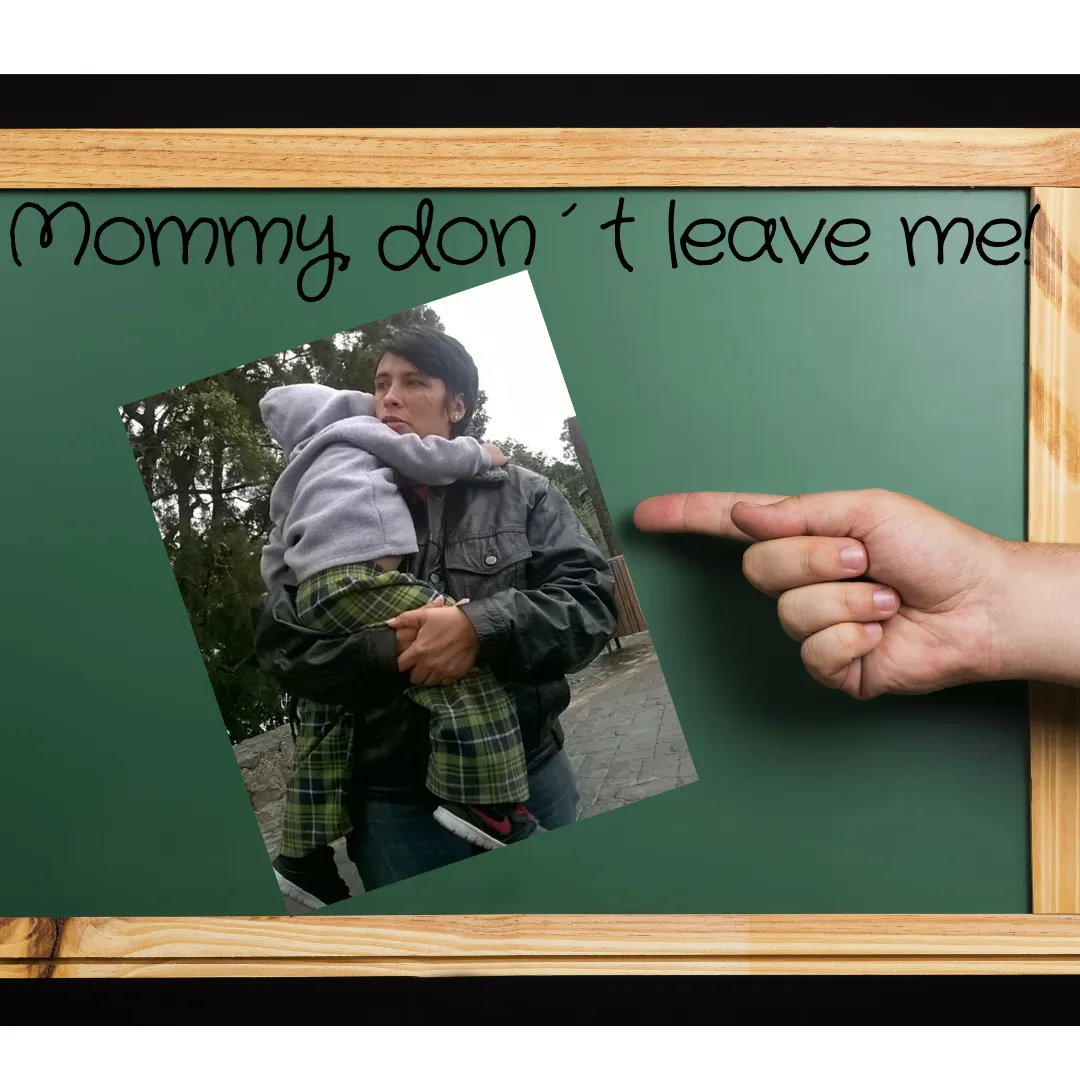
Image by personal archive
Already in a completely different space, our children feel vulnerable, and will begin their own process of adaptation, seeking to experience and get to know their environment. Each one of them comes from an upbringing (or bad upbringing) from home, which may be compatible with ours, and in that case, establishing relationships with them will come naturally.
But what about those who are told that it is normal to defend themselves using violence?
It's not child's play
in a group, there is a child who uses violence to make his or her point of view known, or to generate forced leadership, it is important to take action.
In many cases, responsible adults justify that biting, pushing or other behavior that violates the safety of others is part of children's games, but this is not entirely true.

When our child comes home with a visible bump, or tells us that something makes him/her uncomfortable, we must act in order to generate trust and thus avoid the generation of aversions, then sit down in a quiet space, talk and recommend ways to handle such situations. But it is also essential to echo this among the people to whom we entrust their education, since their academic and social performance will depend on the way they are treated within the school premises.
Although I am not in favor of violence in any of its expressions (physical, verbal or emotional), I have always recommended my children not to hide their opinions and to make themselves respected by others. I believe that raising submissive children makes them targets for abuse in the future, even in adulthood.
I try to make them aware of both their rights and their duties, and what is the limit in both cases. As a result, I have achieved questioning children, who, if something does not seem right to them, express it loudly, but without violence.
They know that they can go to their teachers if they feel uncomfortable, and I involve them in my friendships with my closest people, so that they know who they can go to in case of emergency, with the proper advice to tell me if they, for some reason, come to bother them.
Bullying within the family
But sometimes, these situations are generated within the family group, and that's when kids get confused and don't know how to respond.
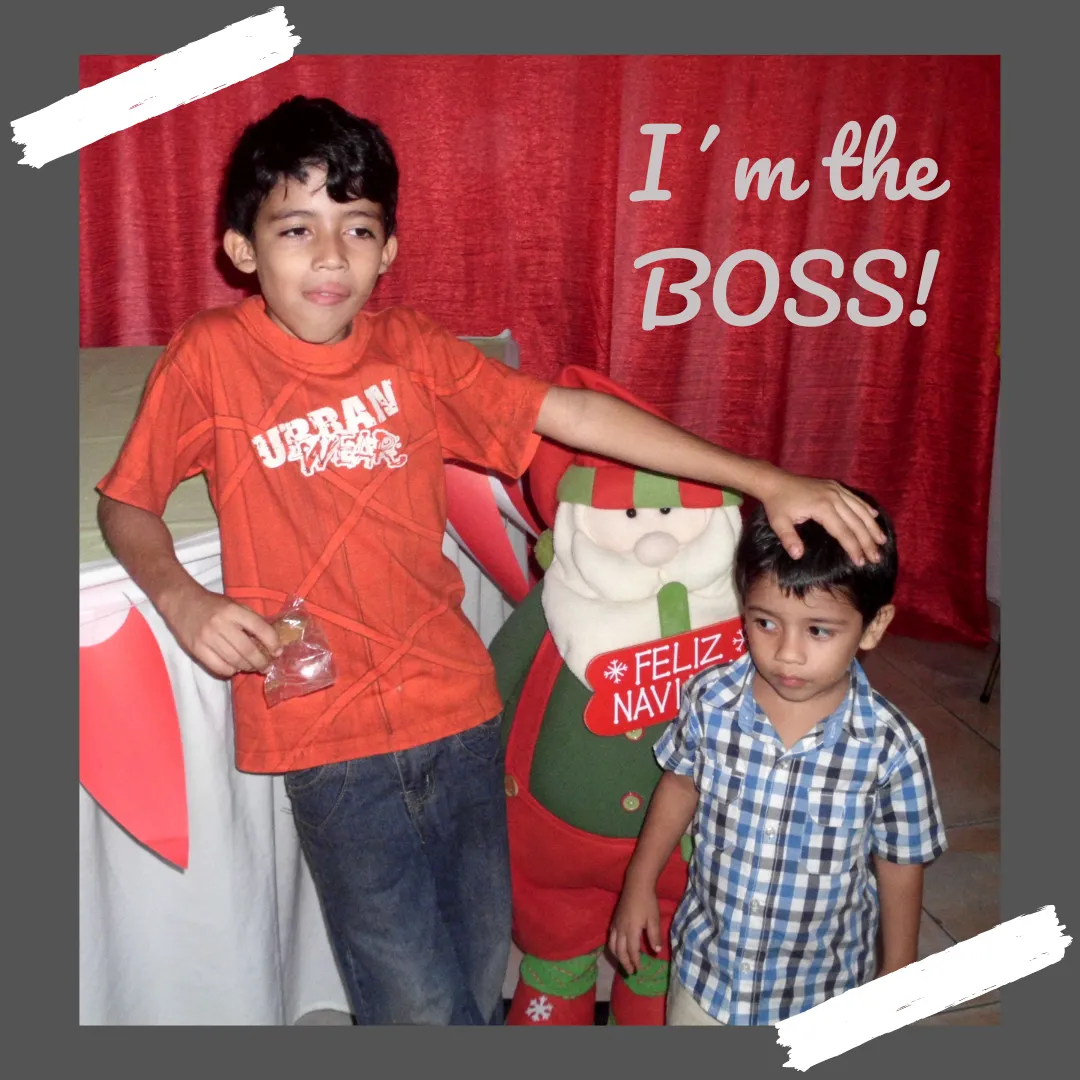
Image by personal archive
In my particular case, my cousins used to criticize and tease my brother, who was very shy as a child. For the family, it was a game and sometimes even the adults joined in the teasing. In the face of this, my parents did nothing to stop him, and he became more and more closed in his shell, to the point that when he grew up, he simply never visited them again.
The same thing happened to me, but this time, it was my own mother who made fun of me. For her, not getting me to behave like her particular vision of a child was a reason to call me names and say nasty words about me to family and friends, as well as to strangers.
In these cases, children's confusion increases, because who are they supposed to turn to?

I began to generate an internal rage that I channeled through my studies and daily activities. I would strive to excel, as a way to generate pride in my mom, who, in turn, only saw the mistakes I could make.
This kind of behavior, which is sometimes the product of repeating patterns of upbringing, must be eradicated, especially if the victims express their discomfort.
In these cases, there is always an option. Go to someone you trust to talk about what is bothering you, and that through that person, a change of attitude of the victimizer can be channeled.
If this does not work, and after some time has passed, it is in your hands to leave the vicious circle and move away from what generates discontent and discomfort, as was my case. Putting distance between what hurt me has helped me to improve my self-esteem and to teach my children the importance of avoiding relationships of this type, even if they are family relationships.
Don't let yourself! is not wrong, but you have to say it to yourself, when someone tries to violate your legitimate rights as a person, also advise your children not to let themselves, but not using violence, but avoiding being the target of ridicule and denouncing when others interfere in the proper development of their daily lives.
Fotografías por/Photografy by: Márluy Escalona, Pixabay, Redmi9T
Edición/Edition by: @mamaemigrante on Canva
Translanted with www.DeepL.com/Translator (free version)